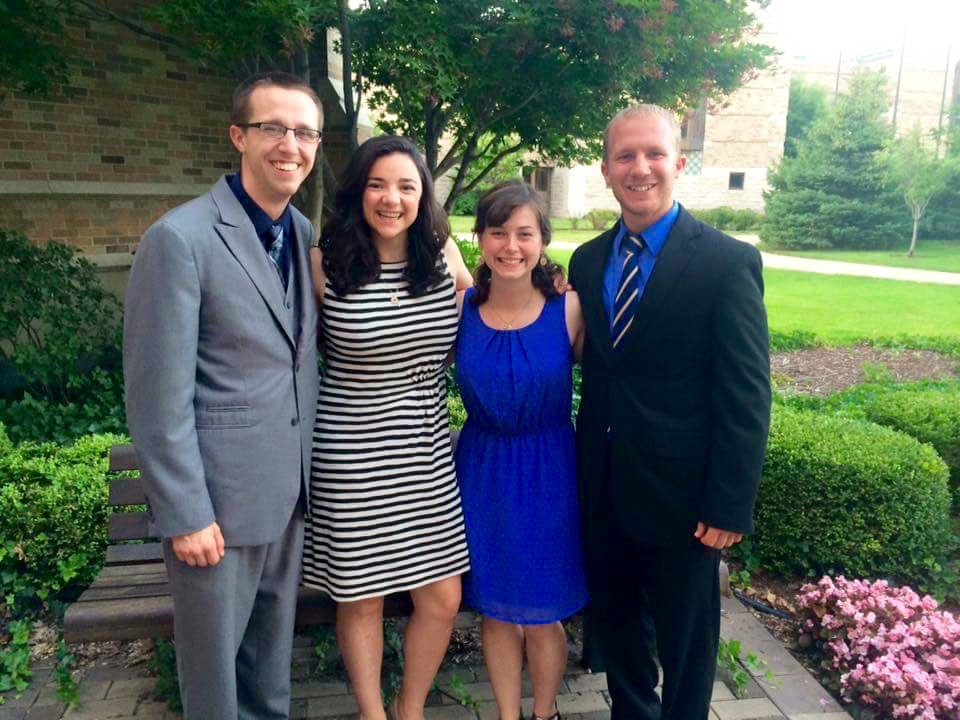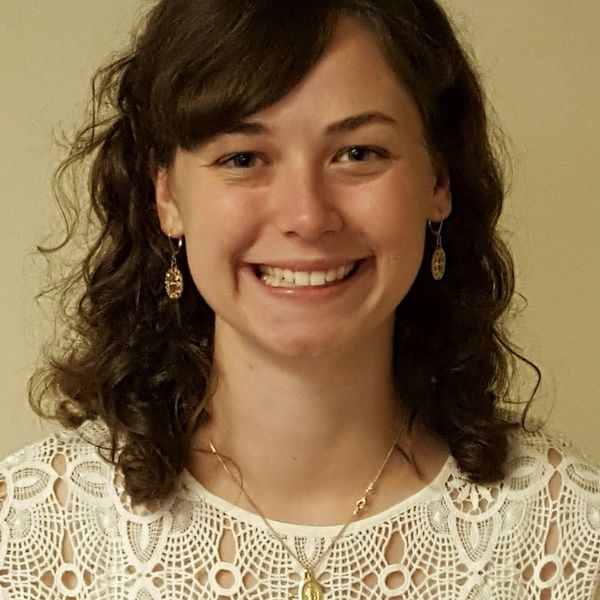Note: For two years in the Echo program, one commits to living in Christian community with anywhere from two to five others, drawn together by serving the Church, praying together frequently throughout the workweek, and spending one evening each week specifically dedicated to growing in knowing each other and building a common life together.
I sat at my community’s small dining room table with my heart overflowing in gratitude. The events of that evening gave me occasion to pause and consider the ways that I have been blessed to live in an intentional faith community with Sean, Shaughn, and Stephanie.
With a plastic tiara on my head, toy scepter in my right hand, and a still-novel engagement ring on my left hand, I realized that my community had planned an evening to celebrate my recent engagement within our home. They had known of the soon-to-be engagement for months, and kept the secret; now, reunited in our community apartment, they wanted to share in this life-changing joy.
In two years of living together, my fellow apprentices in Echo (Sean, Shaughn, and Stephanie) had ascertained my favorite foods, and they now presented my very-surprised self with those foods in our dinner. They then presented three of my favorite movies and asked which one I wanted to watch for our community activity (complete with popcorn, of course). That evening, the three of them helped me to realize some of the primary reasons that living with them has help me understand what it is to live in Christian community.
That night, I felt known and understood. They showed love, affirmation, and celebration of the person I am; they showed care and appreciation for the ways that I see the world. And most profoundly, they shared and understood my joy in knowing the man whom I love and will marry. Josef Pieper helps to unpack what I mean here:
In every conceivable case love signifies much the same as approval. This is first of all to be taken in the literal sense of the word’s root: loving someone or something means finding him or it probus, the Latin root for “good.” It is a way of turning to him or it and saying, “It’s good that you exist; it’s good that you are in this world! (Pieper, An Anthology, 28).
And Ratzinger picks up on this theme of Pieper’s when he states:
If an individual is to accept himself, someone must say to him: “It is good that you exist” – must say it, not with words, but with that act of the entire being that we call love. (Ratzinger, Principles of Catholic Theology, 74)
When I offer these reflections about that evening of being “known and loved” in community, I must offer a clarification as well. It is not as if we live in some saccharine, alternative reality in which the four of us flit through our community’s apartment saying, “It’s good that you exist! I affirm your existence, you beautiful person; oh, humanity is wonderful…” with four sighs as we collectively gaze out the window.
Rather, love in Christian community is that, “act of the entire being that we call love.” We have learned to love each other in action, to will the good of the other, as St. Thomas puts it, because mostly unconsciously we have realized this: to love in action is to give of myself (and the way I might operate instinctually) for the sake of those whom we share a life with. It is to love the other not as we might prefer to be loved but rather as they need to be loved, given the person they are and the life they have lived and will live.
We are four different people; we have reflected together that had we not been placed in community together, we do not know if all four of us would have been close friends. We have distinct personalities, a variety of standards of cleanliness in our public and personal space, different ways of recharging and coping with stress, varied hobbies, and even different preferred ways of prayer. But rather than expecting each other to all homogenize our personalities and life experiences, we have grown with and in relation to each other.
In short, to live in Christian community with Sean, Shaughn, and Stephanie has been an apprenticeship in learning what it is to love others: assisting in their flourishing, acknowledging the persons they are and the experiences they have had as good and different from my own, and it has also been: "…a time of taking in – taking in friendship, conversation… wisdom, knowledge, beauty, holiness- and later, well, there’ll be a time of giving out” (Vanauken, A Severe Mercy, 118).
As we lived our last week in community together and prepared to go out to our next endeavors, I still give thanks for the blessing of two years spent with people who have helped me know and have shown me what it is to love and to live a life modeled after Christ’s.

